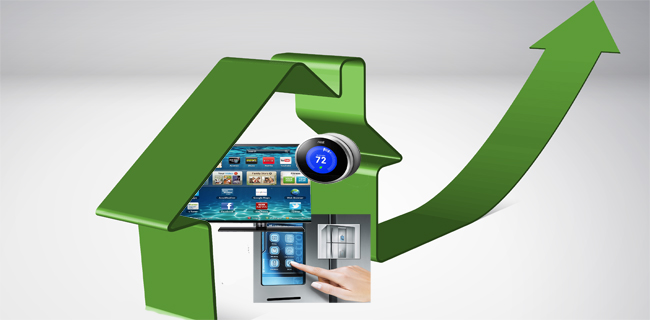Smart home thermostats, connected kitchen appliances and the fitness monitors we’re all wearing offer many amazing benefits, but all those connected devices can also create privacy risks, a report from the Federal Trade Commission says.
FTC Chairwoman Edith Ramirez predicts 2015 will be the year we start hearing about smart home hacking.
“Connected devices that provide increased convenience and improve health services are also collecting, transmitting, storing and often sharing vast amounts of consumer data, some of it highly personal, thereby creating a number of privacy risks,” Ramirez said in a recent speech.
The connected devices we use also leave behind a digital trail. “That data trove will contain a wealth of revealing information that, when patched together, will present a deeply personal and startlingly complete picture of each of us – one that includes details about our financial circumstances, our health, our religious preferences and our family and friends,” Ramirez said.
Connected device makers may use the data your devices collect to predict your behavior and influence your conduct, much in the same way as store discount cards now allow your grocer to foresee what you’ll buy next week.

“This pervasive collection of data inevitably gives rise to concerns about how all of this personal information will be used,” Ramirez said. “Will the data be used solely to provide services to consumers? Or will the information flowing in from our smart cars, smart devices and smart cities just swell the ocean of “big data,” which could allow information to be used in ways that are inconsistent with consumers’ expectations or relationship with a company?”
It’s possible that one day big data companies will combine information from different devices. For example, they might combine data about what you’re watching on TV with data from your heart rate monitor or data showing when you’re using your parking lot security card to enter your condo garage.
“Will this information be used to paint a picture of you that you will not see, but that others will – people who might make decisions about whether you are shown ads for organic food or junk food, where your call to customer service is routed and what offers of credit and other products you receive?” Ramirez asked.
What The FTC Wants
The FTC has called on businesses that make Internet-connected devices to do a better job of protecting your privacy and security, so you don’t put yourself at risk when you install devices to improve your home’s energy efficiency or wear a fitness band to improve your health.
The FTC wants companies to:
- Build security into devices.
- Manage security at a high level within their organizations.
- Check that outside service providers maintain security standards.
- Find ways to keep unauthorized users from accessing your device, data or personal information stored on a network.
- Monitor connected devices and provide security patches as needed.
As you purchase connected devices, you may want to ask:
- How is this device secured to prevent hackers from accessing my information?
- What data is collected and how long is it kept?
- How do you use the data you collect about me?


